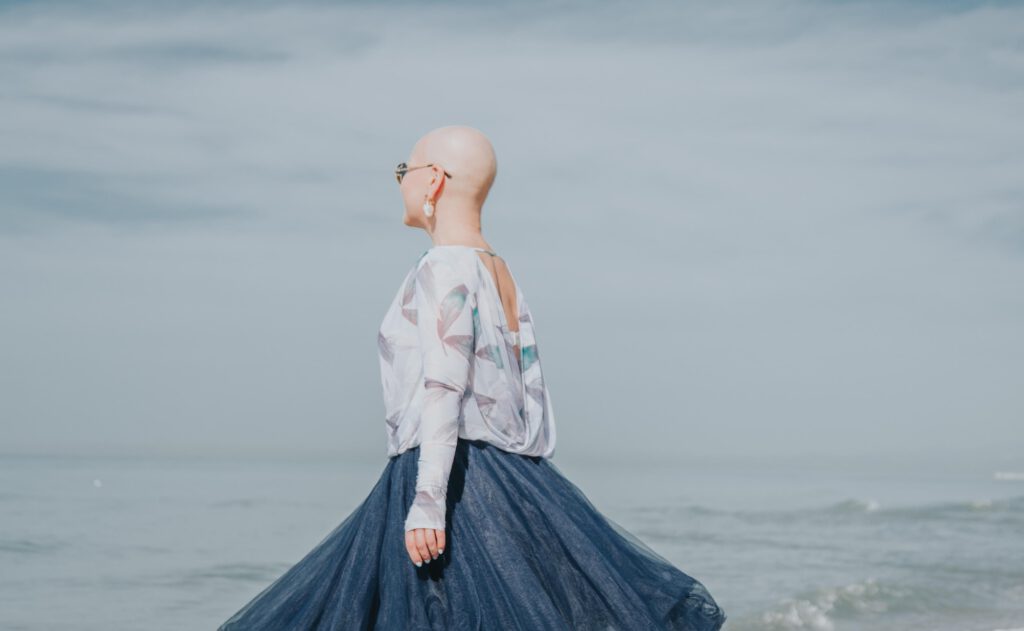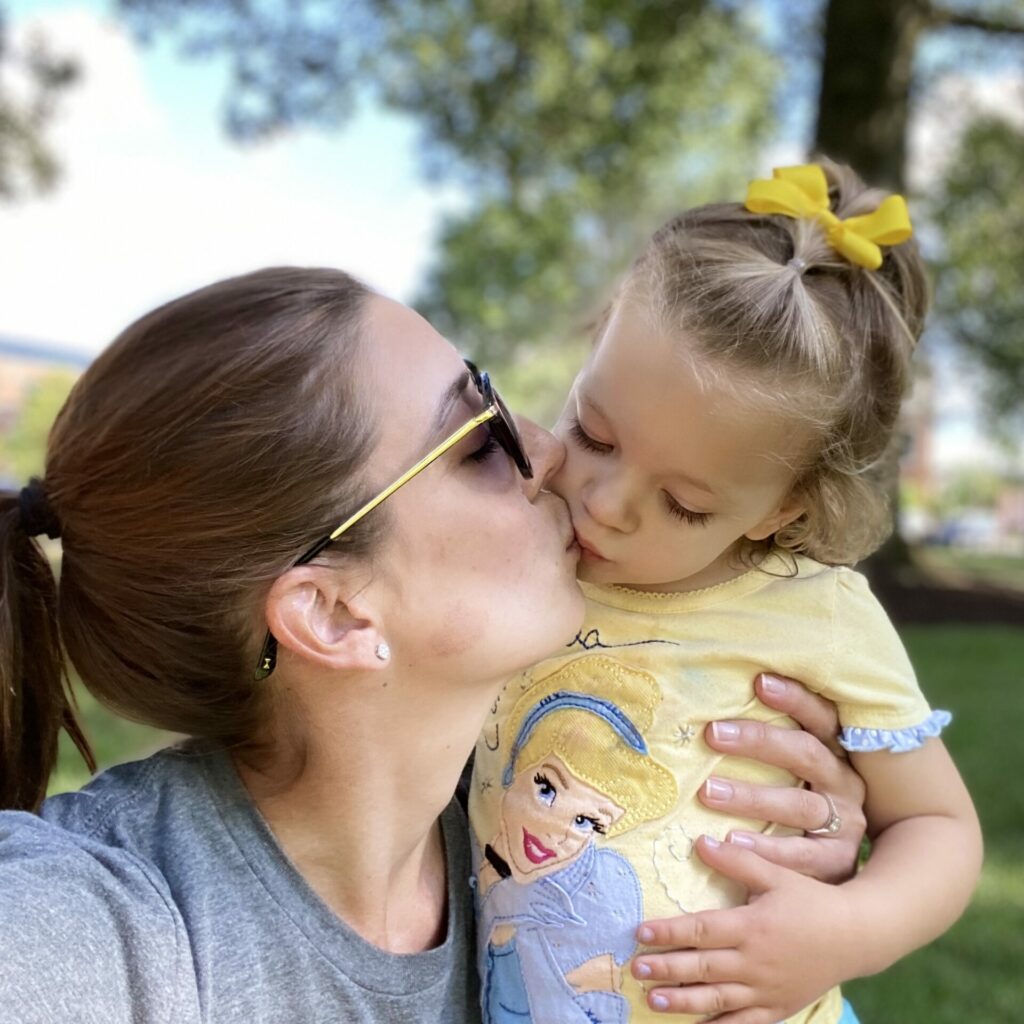
Dating, Sexual Health, and Intimacy
Navigating dating, sex, and relationships can be challenging, especially with a cancer diagnosis.
As a young adult or adolescent with gynecologic cancer, you face unique challenges. This page will guide you through diagnosis, treatment, and recovery, helping you navigate experiences that can differ greatly from those of older patients.

As a young adult grappling with a cancer diagnosis, we know you can feel isolated. Yet you are not alone — nearly 70,000 adolescents and young adults (AYA) are diagnosed with cancer each year. OCRA considers anyone aged 45 and younger to be a young adult in order to include those diagnosed at child-bearing age, or those who have experienced fertility loss, changed fertility, or surgical menopause.
Adolescence is a time when you’re seeking independence and learning to test limits. Being suddenly thrust into the world of illness and forced to focus on your treatment, recovery, and well-being, can make you feel very different compared to your seemingly carefree peers. Yet there are thousands of other adolescents who are experiencing what you are going through.
It is also helpful to consider being treated at a children’s hospital if possible. Not only will you receive excellent medical care, but you will participate in programs geared toward your age group and interact with staff who are well-versed in treating adolescents.
Family Dynamics
Many young adults move back home during treatment for emotional, physical, and financial support. This can disrupt your newfound independence, alter family dynamics, and cause stress. Remember, it’s okay to ask for privacy. Lean on your family for support but also feel free to communicate your need for space and autonomy.
Parents
During treatment, your parents might become overprotective. Don’t be afraid to set boundaries and remember that asking for assistance doesn’t mean losing your independence. Being open with them about what you need can be mutually beneficial, as they, too, want to learn the best ways they can help you.
Siblings
Siblings might struggle with emotions ranging from fear to jealousy. Include them in your journey by giving them simple tasks and involving them in your care to the extent that feels comfortable for you. This can help them cope and feel connected.
Children
Being a parent with cancer adds another layer of stress. Accept help from friends and family for daily tasks. Apps like MyLifeline.org and CaringBridge.com can help coordinate support. Read more about discussing cancer with children.
Social Life
A cancer diagnosis can impact your friendships. Surround yourself with supportive people and those who understand what you are going through. There are many programs for young adults undergoing cancer treatment to help you feel less isolated. View a list of resources for young adults diagnosed with cancer, including this video featuring New York Times columnist and author Suleika Jaouad.
Careers
A cancer diagnosis doesn’t just change your social life. For young adults, especially, who may be focusing on their schooling and burgeoning careers, a cancer diagnosis can feel like it has stopped you in your tracks. There is grief to be processed around interrupted education and careers, and anxieties to be quelled around issues such as returning to work, navigating careers as a cancer survivor, and how much (or even whether) to talk openly about your cancer journey.
You can read more about cancer and careers here. If you are in need of scholarships or financial assistance, explore the resources here.
For questions about insurance, work, and school, explore more here. For camps, wish programs, and retreats, see our comprehensive list of resources here.
Dating, Intimacy, and Sexual Health
Cancer can impact your sexual identity and feelings around dating. For young adults just entering into their first sexual and romantic relationships, worries can be complex, and multilayered. Questions about body image, intimacy, and potential fertility loss can be overwhelming.
It’s important to communicate with your doctors, ask lots of questions, and get a clear picture of your options.
When it comes to sharing your diagnosis with potential partners, it’s up to you how and when to do so. Only do what feels comfortable on a timeline that is right for you. For more information about dating, sexual health, and intimacy, read more here.
Surgical Menopause and Infertility
Going through surgical menopause and subsequent infertility at a young age can be very disorienting and lead to a lot of questions like “What are these changes happening to my body?” or “How will this affect my dating life?” It is important to remember you are not defined by your fertility. Find support in other survivors or speak to medical professionals who specialize in young adults facing surgical menopause and infertility. You may also want to consider getting counseling.
I’m Done with Treatment, Now What?
Continue regular follow-up appointments. Rehabilitation programs can help you regain strength and mobility, while support groups can aid in emotional recovery and coping with your new normal. Embrace life after cancer by reconnecting with friends and exploring new activities.
Connecting with Young Survivors
Local support groups and social media can connect you with other young survivors. Building relationships with those who understand your journey can be deeply comforting and empowering. OCRA’s Staying Connected Support Series has a program that virtually brings together young adult survivors of all gynecologic cancer types to discuss experiences and share stories and support.
Questions About Recurrence
Fear of recurrence is common. Stay vigilant and attend regular check-ups, and communicate any health changes to your doctor immediately.
Things You May Not Have Been Told

I am a 24-year-old ovarian cancer survivor. It was a very difficult time for me when I was diagnosed in March 2022. But I didn’t let the diagnosis stop me. I kept on track to graduate from college in December 2023.

Navigating dating, sex, and relationships can be challenging, especially with a cancer diagnosis.


Many patients find substantial relief through integrative therapies, dietary changes, palliative care, and more.
Get email updates about research news, action alerts, and ways to join the fight.